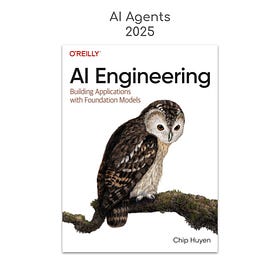Lessons from Testing Dozens of AI Agents in 2025
What I learned after testing dozens of AI agents. What works, what breaks, and where the future is headed 🤖
The AI agent scene in 2025 isn’t just booming, it’s maturing fast. After putting dozens of AI agents through real-world tasks over the past year, one thing is clear: the days of generic AI assistants are fading. What’s rising in their place? Specialized, tightly integrated, and collaborative systems that get things done. Here’s what stood out.
1. Specialized Agents Are Winning
Forget one-size-fits-all. Today’s most useful agents are built for specific tasks and they’re seriously good at them. Content agents that generate marketing campaigns in minutes. Financial agents that analyze market data with speed and nuance. Customer support agents that triage issues and escalate only when needed.
The key lesson? Choose the right agent for the job. General-purpose LLMs can do a lot, but they often fall short when precision or domain knowledge matters.
2. Integration Is a Game Changer
An agent is only as good as its connections. The top-performing agents we tested weren’t just smart, they were seamlessly integrated into the tools teams already use.
Slack, Salesforce, Notion, Google Sheets, CRMs, cloud APIs, you name it. Agents that could plug in, pull data, and deliver results without needing extra manual setup always came out ahead.
If an agent can’t embed into your workflow, it won’t last long.
3. Human-AI Collaboration Works Best
Here’s the sweet spot: humans set the direction, AI handles the grunt work.
In content creation, for example, we saw the best outcomes when agents drafted first versions, and humans polished them for tone and clarity. In data analysis, agents handled extraction and structuring, while humans drew strategic conclusions.
Autonomy is powerful, but collaboration is practical. AI is a partner not a replacement.
4. Ethics Can’t Be an Afterthought
Autonomous agents raise big ethical questions. During testing, we came across tools with murky data collection practices, and others that couldn’t explain their decision-making.
Bias, transparency, privacy they matter. And not all agents are built with those safeguards in place.
If you're rolling agents into your business, choose vendors with strong ethical frameworks. It's not just smart, it's necessary.
5. The Learning Curve Is Real
Even with no-code tools and LLM wrappers, deploying agents still takes know-how. Teams with prompt engineering experience or technical fluency saw better results.
That doesn’t mean it’s out of reach for newcomers. But it does mean that training, documentation, and good UX can make or break adoption.
Invest time to learn, or partner with platforms that lower the barrier.
6. Balance Cost With Value
Some of the most advanced agents are... expensive. But not always better.
We found that mid-range tools, with smart design and clear features, often delivered better ROI than flashy enterprise agents with bloated pricing.
Pay for outcomes, not hype. Especially if you’re a startup or indie builder.
7. Multi-Agent Systems Are the Future
One of the most exciting discoveries: agents working together.
We tested systems where one agent forecasted demand, another handled inventory, and a third managed logistics all in sync. This type of orchestration is still early-stage, but it’s clearly the direction things are headed.
Teams of agents collaborating? That’s where we’ll see exponential gains.
Final Thoughts
Testing dozens of AI agents this year confirmed one thing: the future of work is changing fast. But success with AI isn’t about using the biggest model or fanciest UI.
It’s about finding the right tool for the task, building workflows that humans and agents can share, and making sure your stack is integrated, ethical, and adaptive.
2025 is the year to stop testing agents in isolation. It’s time to put them to work.
Have you tested or deployed AI agents this year? I’d love to hear what you’ve learned.
If you enjoyed this post, explore more insights on AI agents at AI Agents Simplified ⚡
AI Agents in 2025: Technical Insights and Frameworks
AI agents aren’t just a buzzword anymore! they’re doing real work. From scraping the web to managing business ops, agents are moving from “cool demo” territory into production-ready tools. And 2025? It’s the year these systems start running entire workflows, not just answering questions.
How AI Agents Chat? And Why It Matters?
As large language models (LLMs) keep changing industries from customer support to healthcare, the emergence of LLM-based agents is opening a new chapter in AI. These agents can make decisions on their own, reason through problems, and use external tools, which is changing how we handle complex tasks. But there’s a big problem holding things back: there’…
If you liked this post of AI Agents Simplified, share it with your friends and spread the knowledge! ❣️






